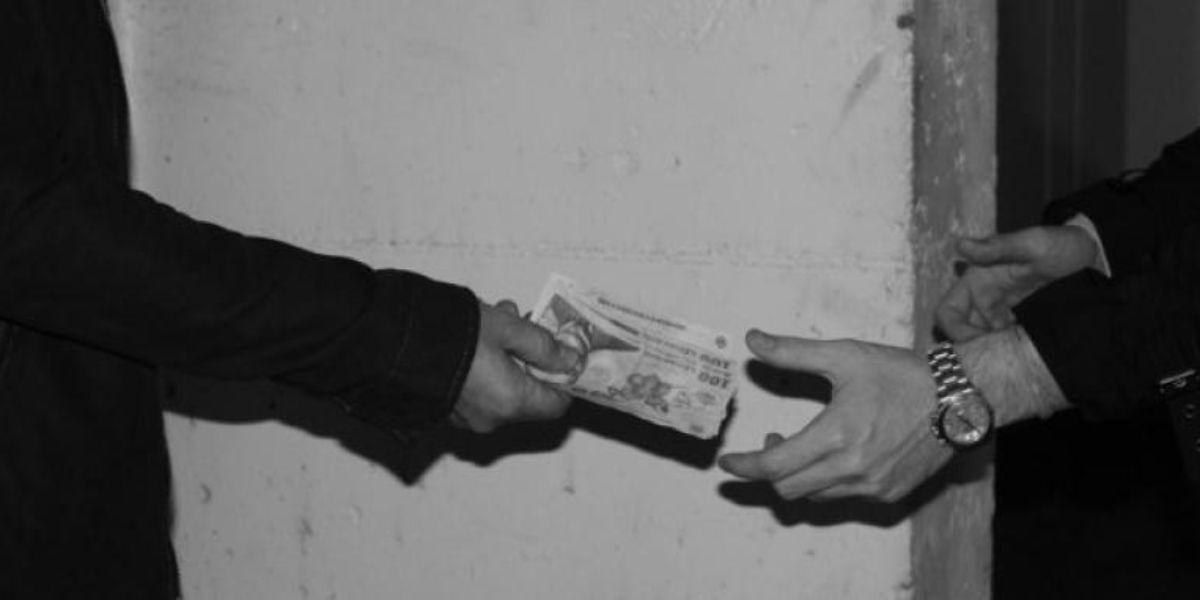Corruption is often a brake for many foreign companies which would be tempted to invest in Romania, but who are concurrently afraid of not being able to control their investment safely, fearing that they would find an essentially corrupt or even mobster context in Romania. Hence, it is important to take an objective look at the current situation in Romania in terms of corruption.
Corruption has already existed in Romania under the communist regime (from the 1950s to the 1990s). It was in those times for every civil servant the means to get something better and for all, the essential key to evolve in a system undermined by bureaucracy (black market).
When the wall fell, while Romania was sinking in the economic crisis of the 1990s, corruption spread throughout all areas of the Romanian economy ... "Tip" (Spaga), meaning - the size of the banknote that we had to slip into the hands of all those who were holding the smallest power (police, customs officer, doctor, physician, tax inspector or even the security man in the parking lot) had become the essential sesame, the standard functioning of the Romanian society.
Nevertheless, the population was aware of the fact that this system of widespread corruption had affected the economy and prevented any major economic boost. Following this observation, several control plans were implemented during the 2000s.
All the more so as the fight against corruption was the sine qua non condition established by the Brussels Commission for Romania's accession to the European Union (hence the delays in the fight against corruption which led to Romania's accession to the European Union being postponed from the year 2006 until 2008).
This fight against corruption has taken especially the form of establishing a strong financial prosecutor's office (National Anticorruption Directorate - DNA), specifically dedicated to the fight against corruption. This prosecutor's office was endowed with real powers and vested with real independence. It was thus able to prosecute and sentence to effective imprisonment many political figures (ministers, deputies, local elected officials, ...), officials (police, customs officers, ...), businessmen (presidents of football clubs, ...), etc ...
Today we find in every institution in Romania (in the headquarters of the administration, customs, police, etc.) posters with a free anti-corruption number that anyone can call (even in English) when they face a corruption issue ...
All these efforts have contributed to the significant reduction or even elimination of the corruption phenomenon in Romania. In fact, officials, who know they are being closely monitored on the subject, no longer dare to venture into a corruption scheme, as they are aware of the high probability of being caught and the high penalties they face in case of a conviction.
Thus, in more concrete terms, in the last ten years, Romanian companies have no longer been exposed to the issue of corruption in Romania.
Pockets of resistance of old corrupt practices remain nowadays at two levels: first, in the award of public contracts (local, national or even European), which are often the result of arrangements among friends. And also in the functioning of the public health system, where, unfortunately, Romanian citizens have to constantly slip a banknote to nurses and physicians, while signing with the other hand pre-printed administrative forms certifying that they didn't give anything ...
Corruption is often a brake for many foreign companies which would be tempted to invest in Romania, but who are concurrently afraid of not being able to control their investment safely, fearing that they would find an essentially corrupt or even mobster context in Romania. Hence, it is important to take an objective look at the current situation in Romania in terms of corruption.
Corruption has already existed in Romania under the communist regime (from the 1950s to the 1990s). It was in those times for every civil servant the means to get something better and for all, the essential key to evolve in a system undermined by bureaucracy (black market).
When the wall fell, while Romania was sinking in the economic crisis of the 1990s, corruption spread throughout all areas of the Romanian economy ... "Tip" (Spaga), meaning - the size of the banknote that we had to slip into the hands of all those who were holding the smallest power (police, customs officer, doctor, physician, tax inspector or even the security man in the parking lot) had become the essential sesame, the standard functioning of the Romanian society.
Nevertheless, the population was aware of the fact that this system of widespread corruption had affected the economy and prevented any major economic boost. Following this observation, several control plans were implemented during the 2000s.
All the more so as the fight against corruption was the sine qua non condition established by the Brussels Commission for Romania's accession to the European Union (hence the delays in the fight against corruption which led to Romania's accession to the European Union being postponed from the year 2006 until 2008).
This fight against corruption has taken especially the form of establishing a strong financial prosecutor's office (National Anticorruption Directorate - DNA), specifically dedicated to the fight against corruption. This prosecutor's office was endowed with real powers and vested with real independence. It was thus able to prosecute and sentence to effective imprisonment many political figures (ministers, deputies, local elected officials, ...), officials (police, customs officers, ...), businessmen (presidents of football clubs, ...), etc ...
Today we find in every institution in Romania (in the headquarters of the administration, customs, police, etc.) posters with a free anti-corruption number that anyone can call (even in English) when they face a corruption issue ...
All these efforts have contributed to the significant reduction or even elimination of the corruption phenomenon in Romania. In fact, officials, who know they are being closely monitored on the subject, no longer dare to venture into a corruption scheme, as they are aware of the high probability of being caught and the high penalties they face in case of a conviction.
Thus, in more concrete terms, in the last ten years, Romanian companies have no longer been exposed to the issue of corruption in Romania.
Pockets of resistance of old corrupt practices remain nowadays at two levels: first, in the award of public contracts (local, national or even European), which are often the result of arrangements among friends. And also in the functioning of the public health system, where, unfortunately, Romanian citizens have to constantly slip a banknote to nurses and physicians, while signing with the other hand pre-printed administrative forms certifying that they didn't give anything ...






